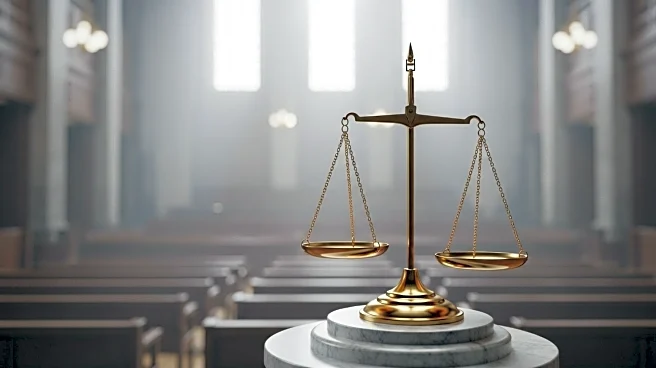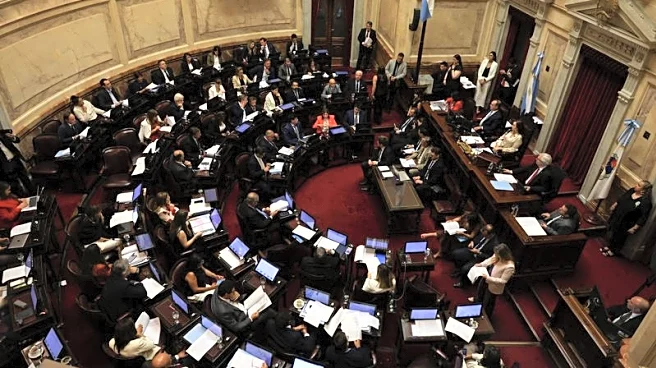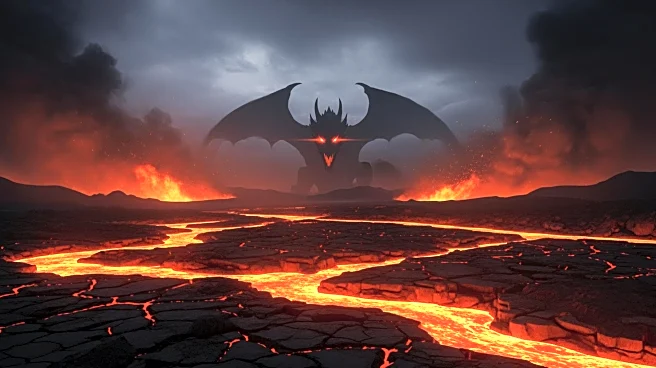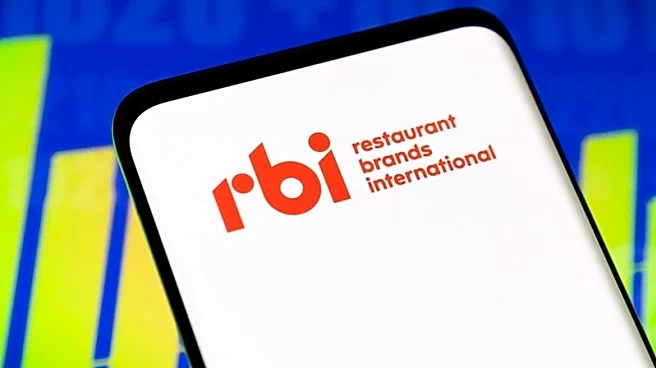What's Happening?
In Washington, D.C., prosecutors have dropped at least 11 cases out of more than 50 federal charges filed since President Trump's emergency law-and-order surge began. This high rate of case dismissals has raised concerns among judges about the effectiveness and judicial scrutiny of the surge strategy. U.S. Magistrate Judge Matthew Sharbaugh has criticized the approach, questioning whether cases are being properly investigated before charges are filed. The surge, which involves federal agents and National Guard members, aims to reduce crime in the District of Columbia. However, the strategy has faced pushback from grand juries, which have refused to indict in several cases, highlighting skepticism about the evidence presented.
Why It's Important?
The dismissal of cases under President Trump's crime surge initiative underscores potential flaws in the strategy, raising questions about the balance between law enforcement and judicial processes. The high rate of dismissals could indicate issues with evidence collection and case preparation, potentially undermining public confidence in the justice system. This development may also affect the political landscape, as it challenges the effectiveness of federal intervention in local crime issues. The situation highlights the need for careful consideration of legal standards and the potential consequences of rapid law enforcement actions.
What's Next?
The ongoing scrutiny of the surge strategy may lead to adjustments in how cases are handled and prosecuted. Judicial and public pressure could prompt a reevaluation of the deployment of federal resources in local crime-fighting efforts. The situation may also influence future policy decisions regarding federal involvement in local law enforcement, potentially affecting similar initiatives in other cities.










